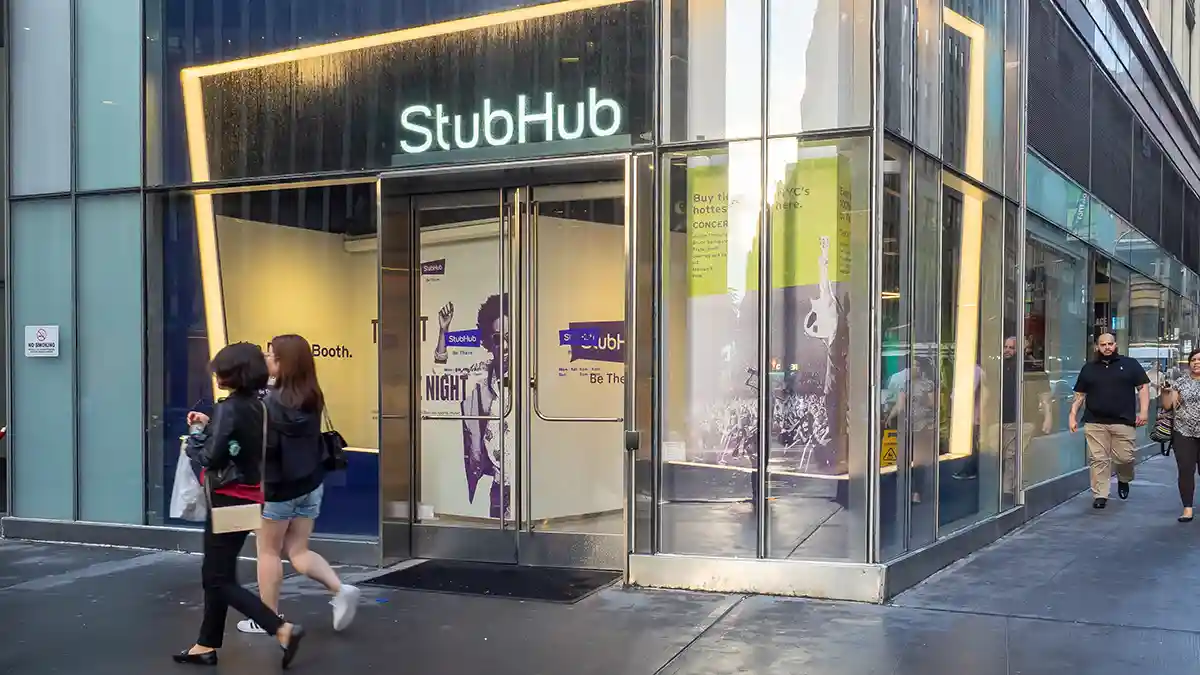StubHub finally made its return to the public markets this week, but its first day of trading proved rocky. Trading for the ticket resale giant began on Wednesday on the New York Stock Exchange under the ticker STUB, with shares opening at $25.35. But enthusiasm faded as the session went on, and the stock closed at $22.00, down about 6.4% from the IPO price, trimming its market value to $8.1 billion.
The uneven debut capped off a winding path to market. StubHub had postponed its IPO plans twice before — first in 2024, and again earlier this year when President Donald Trump’s tariff announcements rattled financial markets. Even so, the company arrived on Wall Street with strong name recognition and a large share of the resale market, benefiting from booming demand for concerts and sports in the years since the pandemic.
CEO Eric Baker was front and center on launch day, offering commentary that drew significant attention. In an appearance on CNBC, he acknowledged that new federal regulations requiring “all-in” ticket pricing would likely cause a temporary dip in sales, estimating about a ten percent short-term hit as consumers adjusted. “It’s just a one-time hit to conversion, resets the market, and then onward and upward you go,” he explained, framing the changes as ultimately healthy once the entire industry adopts them.
In a separate interview with Axios, Baker also threw his support behind President Trump’s recent executive order aimed at curbing ticket price gouging. He praised its focus on pricing transparency, cracking down on automated bots, and tackling anticompetitive behavior — issues that have long loomed over the live events industry. While cautious about predicting any outcome, Baker suggested that regulatory pressure on Ticketmaster could ultimately create opportunities for StubHub. “Everything we focus on doing assumes that nothing changes with the status quo,” he said. “If anything were to change, I’d assume there would be a lot of positive developments for us”.
StubHub’s financial picture is mixed heading into its new life as a public company. The company reported first-quarter revenue of $397.6 million, up 10% year-over-year, but also saw its net loss widen to $35.9 million. More than 40 million tickets were sold on StubHub’s platform last year, with sellers benefiting from a steady flow of blockbuster tours — from Taylor Swift’s Eras Tour to Beyoncé’s Renaissance run — and major sporting events like the Super Bowl.
TicketNews covered the IPO’s pricing earlier this week, noting that the $23.50 offer price was far below the company’s once-lofty $16.5 billion ambitions. That preview provided context on the long road to this public debut, which included StubHub’s sale to eBay in 2007, its reacquisition by Baker through Viagogo in 2020, and the delays leading up to Wednesday’s launch.
With its stock now trading, StubHub will have to navigate the scrutiny that comes with public reporting, while also competing in an increasingly crowded secondary ticketing marketplace. Investors will be watching closely to see if the company can steady its share price, prove it can grow under tighter regulatory rules, and maintain its foothold in a live events economy that continues to evolve.



